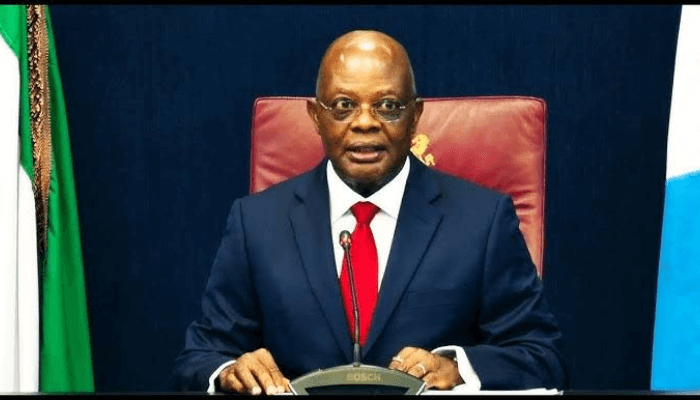
Reps to Rivers Sole Administrator: Submit Budget Breakdown in 48 Hours
Here’s a clear summary of the Rivers State CCTV budget controversy unfolding at the National Assembly:
🧾 What Happened
The House of Representatives Ad-hoc Committee on Rivers State has given the state’s Sole Administrator, Vice Admiral Ibok-Ete Ibas (Rtd), 48 hours to explain major allocations in the proposed 2025 budget, especially:
₦24 billion for CCTV at the Government House
₦30 billion for gunboats
₦23 billion as contingency funds
Absence of a legally required Medium Term Expenditure Framework (MTEF)
Use of state funds for federal projects without reimbursement agreements
🎤 Key Voices
🗣️ Rep. Julius Ihonvbere (APC, Edo) — Committee Chair
“We need a full breakdown of these suspicious allocations. Transparency is non-negotiable.”
He demanded:
Detailed breakdown of all flagged allocations
Internally Generated Revenue (IGR) reports from the last 3 months
Full records of transfers to local governments
Clarification on budget deficit strategy
He also praised President Bola Tinubu for restoring peace between the Executive and Legislature in Rivers State.
🛡️ Response from the Rivers Govt
Delivered by Senior Special Assistant Andrew Nweke, representing Sole Administrator Ibas.
Claimed many budget items were “inherited” from previous administrations.
Justified:
Gunboats as vital for law enforcement and riverine security
Contingency reserve as necessary for emergencies and flooding
CCTV as part of “modern security infrastructure” for the “honourable office” of the Governor
Nweke pledged to deliver all requested documents within the 48-hour window.
🧭 Why It Matters
₦24bn for CCTV is being viewed as an excessive and potentially corrupt allocation.
Public outrage is growing over unchecked spending, especially amid poverty and insecurity.
The lack of MTEF violates Nigerian budget law and raises transparency red flags.
Tensions linger between the Rivers state executive and legislature, despite Tinubu’s intervention.
📌 What’s Next
The committee expects full submission of documents by the 48-hour deadline (likely by July 2).
If explanations are unsatisfactory, the committee may recommend sanctions, block approval, or call for EFCC/ICPC investigation.
More scrutiny may fall on other states using security votes or executive discretion for questionable projects.